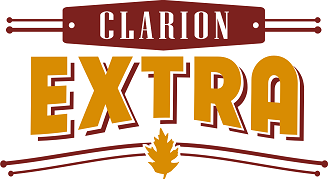State Rep. Donna Oberlander provided an update on PennDOT’s plans for interstate bridges in the state at the Clarion Chamber of Commerce and Industry’s annual fall legislative breakfast Friday morning.
This was the first such event since 2020 due to COVID, and it was held at the Motel 6 in Clarion.
“Tolling is not going to happen,” said Oberlander, who is the Republican whip in the state House. “That was a hard fought battle.”
The state’s Commonwealth Court ruled in July that PennDOT violated the Public-Private Partnerships law when the board voted to toll interstate bridges it planned to repair or replace but did not name the specific bridges.
Oberlander reported on several issues discussed in the last week of this session of the state Legislature, including election integrity.
Oberlander said several bills were sent to Gov. Tom Wolf, but the bills were vetoed.
“We will continue to work on that,” she said.
Oberlander also talked about said the Regional Greenhouse Gas Initiative (ReGGI).
Oberlander said she worked on a corporate net income tax reduction.
“Pennsylvania was the second highest in the nation next to California,” she said. “We don’t want to be California.”
Bill Cortese, executive director of American Promise, a non-partisan group that says it is dedicated to “protecting American elections”, discussed “dark money” and the impact on elections.
I think it’s important that we get back to the basics,” Cortese said.
Cortese said American Promise is advocating for empowering states through a constitutional amendment that would allow states to regulate elections within their own state.
“If we don’t do this foreign nations will come in and spend money in our elections,” he said. “That is a very slippery slope.”
He said in 2010 the most expensive U.S. Senate race cost $25 million, but “the numbers now are staggering and it is $200 million. In 2020, over $2.1 billion was spent on just nine Senate races.”
“It is important to know who is funding these campaigns,” Cortese said.
For more local news, visit TheClarionNews.com.

